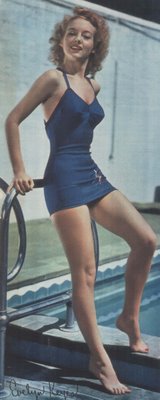
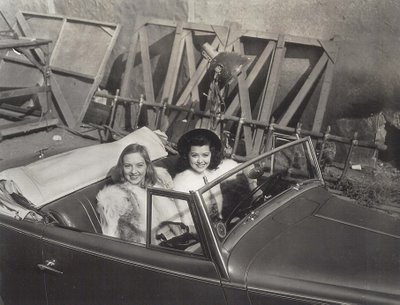
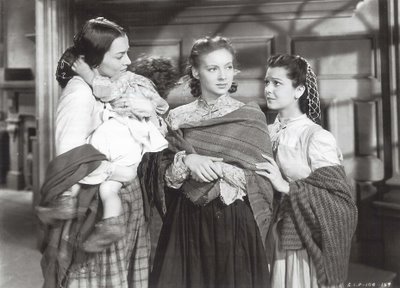 Monday Glamour Starter --- Evelyn Keyes
Monday Glamour Starter --- Evelyn KeyesEvelyn Keyes is one of those hardy survivors of the Golden Age who’s gotten to outlive other members of her club, becoming a sort of gatekeeper between here and eternity. Our modern day perceptions of classic Hollywood are based largely on what folks like Evelyn have had to say about it. If you stay around long enough in this business, you get to write the history for those of us too young to have known it first hand. For some old-timers, that’s an opportunity to settle scores of long standing and serve themselves at the expense of those who can’t answer back, but Evelyn Keyes strikes me as one of the more clear-headed and reliable diarists of that era. For most people, she provides an affirmative answer to the age-old trivia question, Who’s left from Gone With the Wind? For years, Evelyn Keyes signed whatever mementos turned up in her mailbox and sent them back … gratis. About ten years ago, requests (and photos) began returning to fans with a form demand of twenty-five dollars for each autograph. Well, if Evelyn’s going to outlast the rest of that legendary group, why should she spend all that time helping "Windies" (her phrase) bolster up their collections on a movie she made back in 1939? That question’s been lately rendered moot by health circumstances that have confined this once-dynamic veteran to a nursing facility, where she’s currently residing at age 89.
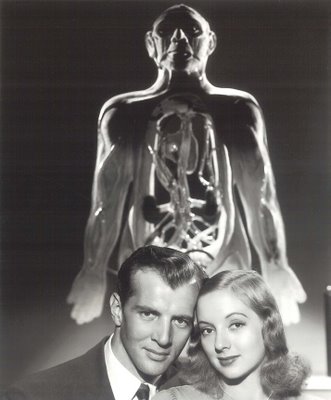

It wasn’t the movies she did, but the friends she made, that inspire our interest in Evelyn Keyes today. Her 1977 autobiography, Scarlett O'Hara's Younger Sister: My Lively Life in and Out of Hollywood, is a randy tome chock full of wild and wooly anecdotes of fast-lane encounters with industry men of the world who bedded and (sometimes) married her. These swimsuit poses go at least part of the way toward explaining what attracted John Huston, Charles Vidor, Michael Todd, and Artie Shaw, but there’s an intellect at work in this book that better accounts for her presence alongside filmland’s best and brightest of that era (and you can pick up a used copy on Amazon for one penny, according to current listings). If she’d worked somewhere other than Columbia, Evelyn Keyes might have become a bigger name, but few stars emerged from Gower Street, and she stymied whatever chance she might have had at that modest address when she rebuffed the crude advances of studio boss Harry Cohn. Once the applause died down for her biggest personal success, The Jolson Story, Cohn assured Keyes she’d never be a bigger star than she was at that moment, and he seemed to have made good on the promise by consigning her to what appeared to be low-grade crime thrillers coming off late 40’s/early 50’s assembly lines. The happy irony lay in the fact that these would become some of the most notable features on her credits list --- The Killer That Stalked New York, The Prowler, 99 River Street, etc. --- a circumstance that led to Keyes’ inclusion among noir names featured in Eddie Muller’s excellent interview collection, Dark City Dames (available HERE).
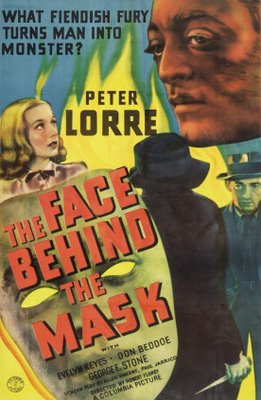
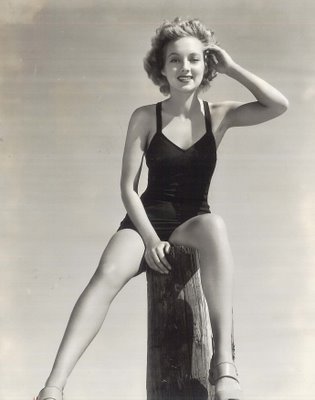
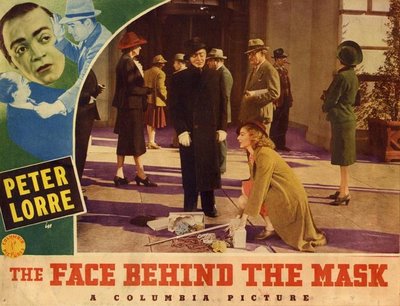
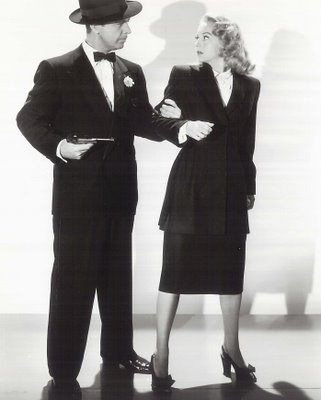
After so many years fielding endless questions about Gone With the Wind, it must have been refreshing to finally take bows for those noir titles, but again, this is an actress who’s been around long enough to see one vogue discarded in favor of another. Publishers had imposed that book title on her. GWTW was still riding a crest of latter-day popularity in 1977, having recently had its television premiere on NBC. Any connection between Evelyn’s memoirs and the movie would assure sales. The thirty years since then have not been kind to Gone With the Wind. The one time theatrical stalwart that remained exclusive to big screens for nearly four decades is now filler on TCM. All the plates, dolls, limited-edition collectibles and so forth that drove the nostalgia market during the seventies and eighties have gone in search of other idols to worship, and the prospect of Gone With the Wind achieving such singular prominence again seems less likely with each passing year. Worth noting is the fact that Scarlett’s two younger sisters (Evelyn and Ann Rutherford) will have outlived her by forty years as of 2007 (Vivien Leigh having died in 1967).
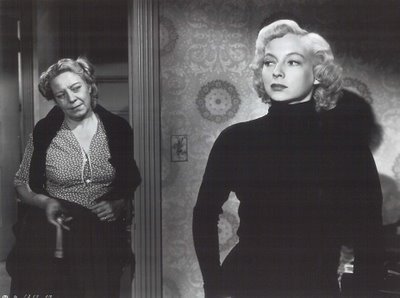
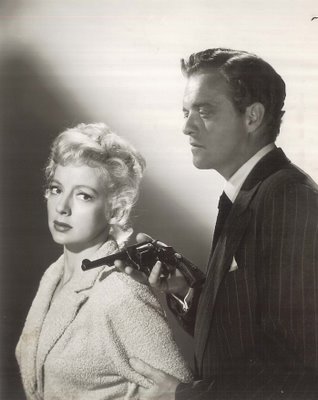
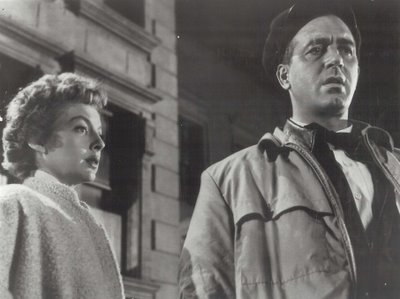
I’d read that Evelyn Keyes was companion to producer Michael Todd between 1953 and 1956, but I hadn’t realized she was also involved in the financing and promotion of Around The World In 80 Days. This is one Best Picture award winner universally reviled today, proof positive, as if more were needed, that Oscars are bought, not earned (though personally, I kinda like it). Todd seems to have financed this extravaganza on a week-by-week basis, and the life he shared with Evelyn usually revolved around hustle dinners where some clueless investor was gathered into the net. It was inevitable that Keyes herself would be snookered as well, but this deal differed in that Todd pledged five percent of Around The World In 80 Days to Keyes in exchange for $25,000 and her continuing efforts on behalf of the picture. The 32.8 million worldwide rentals eventually realized from the show made a lot of people rich, but not Evelyn, who by then had split with Michael Todd. By the time she smelled a rat, he’d perished in a plane crash over New Mexico and her five percent was something estate lawyers, working at the behest of Todd’s son, had no interest in discussing. The protracted lawsuit finally paid out, but for less than Evelyn had coming. She was so dispirited by the whole experience that it was enough just to salvage something from the ordeal and move on. A final marriage to one-time musician Artie Shaw was complicated by his (extreme) temperament, and once again, there was a deal between the two that put Keyes back into litigation in the wake of his death just two years ago. Their agreement had called for each to inherit the estate of the other, whichever died first, and never mind the fact they’d been divorced since the eighties. Evelyn was probably not aware of the court action on her behalf, having relocated for treatment of Alzheimer’s disease. Actor and friend Tab Hunter has assisted with her affairs since that time, and according to wire reports, she did receive the compensation due her from Shaw’s estate.
Photo Captions
Evelyn Keyes and Ann Ritherford arrive at the Selznick lot to shoot Gone With The Wind
Swimsuit Publicity for Columbia Pictures
With Olivia DeHavilland and Ann Rutherford in Gone With The Wind
With Bruce Bennett in Before I Hang
With Rita Johnson and Robert Montgomery in Here Comes Mr. Jordan
One-Sheet and Lobby Card for The Face Behind The Mask
More Swimsuit Publicity
With Dick Powell in Johnny O'Clock
The Killer That Stalked New York
With Van Heflin in The Prowler
With John Payne in 99 River Street